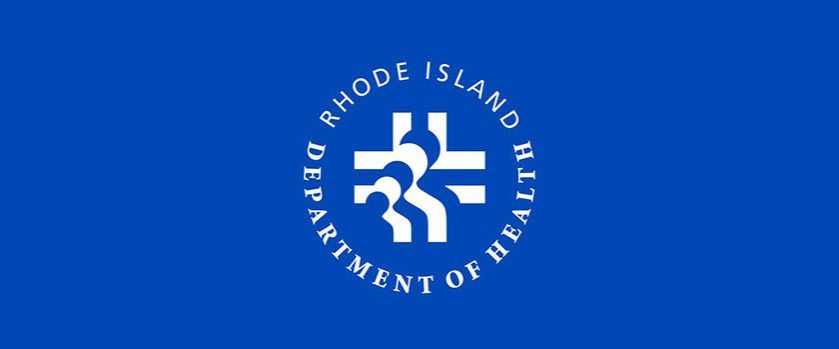The Centers for Disease Control and Prevention (CDC) recently streamlined its COVID-19 guidance for K-12 schools and Early Care and Education Programs, with new recommendations about what all people, regardless of vaccination status and previous infection, should do when exposed to COVID-19. The recommendations outlined for child care programs according to COVID-19 Community Levels are the same as those outlined for the community. Overall, the goal is to minimize disruptions to families’ lives while maintaining key steps to protect against serious illness from COVID-19.
While the CDC has updated its COVID-19 guidelines, many of the recommendations remain the same and are rooted in the most effective strategies to protect ourselves against COVID-19: get tested if you have symptoms or have been exposed to COVID-19; isolate at home if you test positive; wear a mask if you are in a county with a high COVID-19 Community Level; and get vaccinated and stay up-to-date with boosters The CDC also continues to recommend that people take additional precautions if they are at higher risk for severe COVID-19.
RIDOH updated the Child Care Playbook to align with the latest CDC guidance. Highlights of the changes in recommended protocols include the following:
- Children and staff who tested positive for COVID-19 needed to isolate at home for at least 5 full days and return to care if wearing a high-quality mask for an additional 5 days. Under the new guidance, people may remove their mask after leaving isolation if they get two negative antigen tests in a row 48 hours apart with the first test on day 6 at the earliest. If the antigen test results are negative, they may remove their masks around others (day 8 at the earliest). If the antigen test results are positive, they may still be infectious and should continue wearing a mask and wait at least 48 hours before taking another test. People could choose to continue taking antigen tests at least 48 hours apart until they have two negative test results in a row.
- Those who cannot mask should isolate for 10 full days. They may use the testing strategy outlined above (two negative antigens on day 6 and day 8) to return to care sooner than day 11.
- Quarantine is no longer recommended for those exposed to COVID-19, except in high-risk congregate care and healthcare settings.
- Regardless of vaccination status or previous infection, all children and staff who are exposed to COVID-19 should monitor for COVID-19 symptoms and wear a well-fitting mask for 10 days and get tested 5 full days after exposure. Child care providers should decide how to manage exposures based on the protocols that work best for their communities while also considering the benefits of access to in-person learning.
- Screening testing of students and staff who don’t have symptoms and haven’t been exposed is recommended during high Community Levels, outbreaks, or after high risk activities, holidays, etc.
- Cohorting students (or keeping them in stable groups) is no longer recommended.
Thank you to all child care staff and families that took the time to respond to our COVID-19 survey earlier this month. In response to a few questions and comments, RIDOH would like to provide a few updates and reminders.
- “We would like to have access to free or reduced cost rapid tests for our program.”
- RIDOH and DHS will continue to supply free self-test kits to child care programs across the state while supplies last. They may be requested once a month. Test kits may be used for symptomatic, post exposure, or screening testing for all ages. The link to request tests is https://appengine.egov.com/apps/ri/cctts.
- “What options do children under the age of two have for testing?”
- Children younger than age 2 should check with their pediatrician to see if they offer symptomatic or post exposure testing.
- The US Food and Drug Administration (FDA) has not approved/authorized over-the-counter rapid antigen test for use in children younger than age 2. However, off-label use of antigen self-test kits may be used for children younger than age 2 for post-exposure, surveillance, and symptomatic testing. Parents or guardians can administer self-tests themselves per the manufacturer instructions and check in with their pediatricians for more information.
- “We would like to see higher rates of vaccination at our program.”
- The vaccine remains one of the most effective tools in protecting against COVID-19. It is available for anyone ages 6 months and older. COVID-19 vaccine recommendations by age can be found in this chart.
- A new bivalent COVID-19 vaccine is expected to be authorized as a booster for Fall 2022.
- Programs interested in hosting a pop-up vaccination clinic at their program can find information in this flyer.
Lastly, the CDC has released information on monkeypox for Schools, Early Care and Education Programs, and other Settings Serving Children or Adolescents. Currently, the risk of monkeypox to children and adolescents in the US is low. There aren’t any cases in children in Rhode Island.
Child care programs should follow their everyday precautions, including cleaning and disinfection, to reduce transmission of all infectious diseases, including monkeypox.
- Monkeypox virus can infect anyone – including children – if they have close, personal, often skin-to-skin contact with someone who has monkeypox. In this outbreak, most cases of monkeypox have been associated with sexual contact.
- For general updates and information regarding monkeypox, refer to this FAQ page on the CDC website.
Please reach out to ridoh.covidchildcare@health.ri.gov if you have any questions.
Sincerely,
The COVID-19 Child Care Response Team
